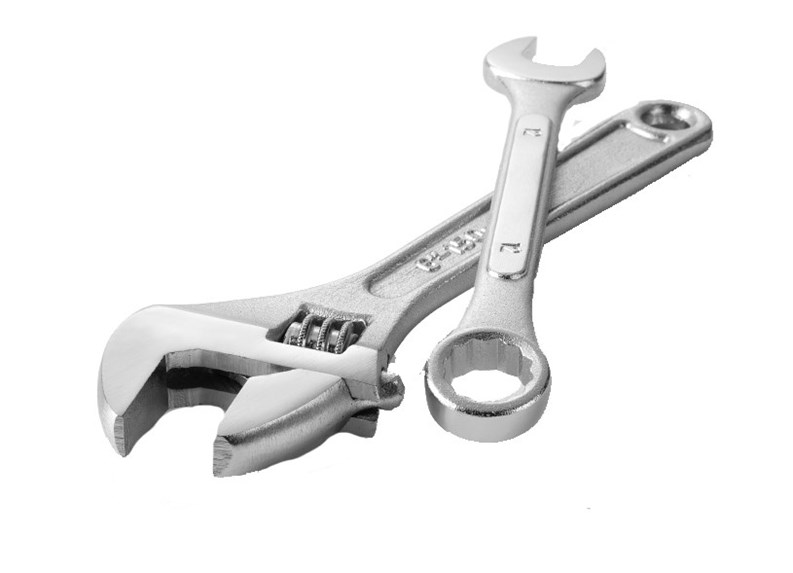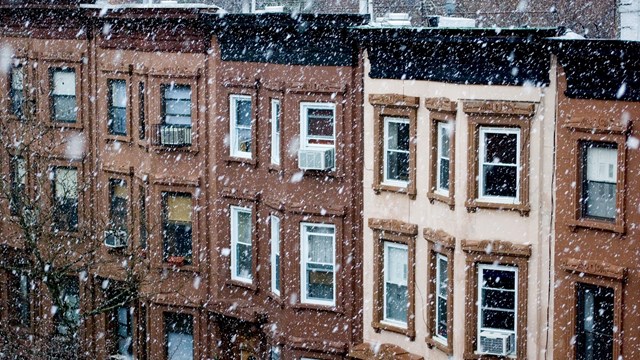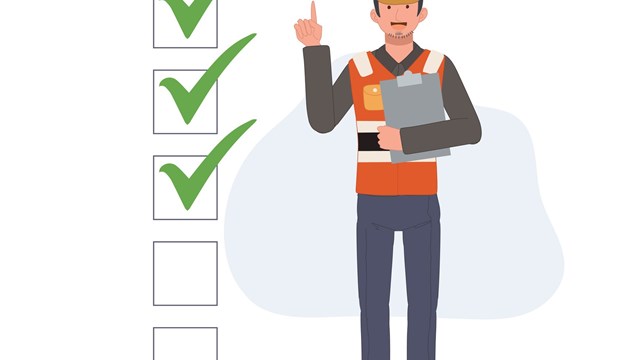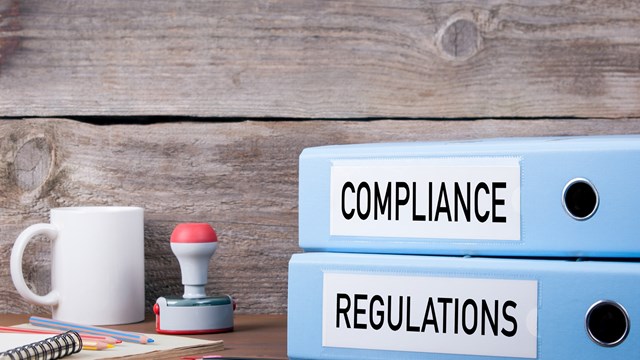If there was a fire in your building, are you confident that you and your family would be adequately warned, protected and saved? If you're not absolutely certain, consider this: last year, there were 27,788 structural fires in New York City in which 125 people died. Although property owners are required to provide residents with smoke alarms, it is the tenant's responsibility to maintain them. There are no fire extinguisher requirements inside homes, and while newly constructed buildings are now legally required to incorporate a sprinkler system, older buildings are often not upgraded.
According to Richard Skinner, northeast regional manager of the National Fire Sprinkler Association, New York City is more than a decade behind in updating antiquated fire prevention codes, putting buildings and lives at risk.
"The most important thing New York needs to do is to get on a ten- or 15-year plan to retrofit all existing buildings with sprinkler systems," says Skinner. New York City Local Law 10 was enacted in March of 1999, mandating that all newly constructed multifamily dwel-lings must be fully protected by fire sprinklers. The law is retroactive for all dwellings having more than three units. For existing buildings, sprinklers have to be installed: as renovations, or as alterations with costs totaling more than 50 percent of the value of the building.
"I know building owners and the real estate industry really want sprinklers and are afraid of the costs, but it's cheaper to put the sprinklers in then they think," says Skinner. "The financial devastation resulting from a fire far outweighs the costs of putting in a sprinkler system. In a building where there is no sprinkler system, the entire building can burn to the ground, tenants are displaced, the building is no longer on the tax role, lives may be lost, and insurance costs go up," says Skinner. "If firefighters are killed, there are payments to those families - and while the fire is happening, more of the city is being compromised because the fire department is at that scene. These costs far outweigh the price of a sprinkler system."
According to the National Fire Sprinkler Association, the costs for installing fire sprinkler systems in buildings six to eight stories high ranges from under a dollar to about $2 per square foot in most new construction, and from about $1.50 to $2.50 per square foot for retrofitting sprinklers in existing buildings.
Although implementing preventative measures - such as sprinkler systems or smoke detectors - may prevent and reduce the number of building fires, the most frequent cause of house fires is faulty or inappropriate heating, followed by cooking and electrical fires and those that are suspicious in nature. According to the New York State Department of Health, the leading cause of fatal residential fires is the careless use of cigarettes and other smoking materials. "If people would be cognizant of disposing of their smoking material properly and making sure the contents are put out, we wouldn't have as many fires," says Stanley Dawe, Chief of Fire Prevention for the Fire Department of New York (FDNY). "In addition, the misuse of candles is now becoming a crisis too."
According to the National Fire Protection Association (NFPA), candle fires in the home have more than doubled since 1990. Almost half (44 percent, to be exact) of these fires start in the bedroom, and many occur because candles are left unattended, abandoned, or inadequately controlled; because some form of combustible material is left too close to the candle, or because children have been playing with candles or something flammable near them.
To help protect and inform residents on fire hazards, such as candles, portable gas heaters and overloaded electrical sockets, and instruct them on evacuation procedures, former Mayor Giuliani created a fire prevention task force in 1999. The task force had a broad base of responsibility, ranging from building fire protection features and conducting public education clinics on how to behave during a fire-related emergency, workshops on construction and building practices, and the proper application of sprinkler codes.
Local law also requires that fire safety notices and a plan containing safety and evacuation procedures must be prepared and distributed (or posted conspicuously) by owners of all residential buildings and spaces, including co-ops and condos and other such residential buildings and spaces with three or more units. Check with your building's owner or manager to make certain you have received this information.
"Make sure an escape plan is [prominently] labeled in your building and includes identifying locations on staircases and making sure exit signs and emergency lighting are functioning properly," says Robert N. Bittar, president of Complete Fire Safety in Brooklyn. "If there are handicapped people or seniors who need assistance, identify their location. Make certain the local fire department is aware of these locations."
However, the NFPA reminds residents that ultimately, every individual is responsible for his or her own safety. The Association writes in their brochures that "building codes, fire codes, those who enforce such codes, and building owners all work in harmony to help provide a safe environment, but these collective pieces have inherent boundaries that they are designed for. This even extends to those with severe mobility impairments."
According to Bittar, "Other preventative measures you can take to protect your family's safety are to make certain there are working smoke detectors and they are maintained. Change the batteries on your child's birthday [to help you remember] and keep the detector clean and free of dust." While it is the responsibility of the building owner or management team to maintain the larger alarm systems within the building, you must care for your own individual detectors. Not doing so may put your family and the entire building at risk.
Also inspect your fire extinguisher to make sure it's functioning properly. A multi-purpose, dry chemical Class ABC fire extinguisher is considered the best choice for general home use. Fire-prevention experts recommend that you involve your kids in the inspections and enlist their help in mapping out your family's escape plan and meeting point if a fire should ever break out.
"Evacuating your building during a fire is going to depend on how your building is constructed," says Dawe. "If you are in a non-fireproof building, the safest bet is to exit the building as quickly as possible by feeling the door, opening it slowly if it is cool, and getting out of the building or onto a fire escape or balcony. If you are in a fireproof building, than evacuate if you see flames or thick smoke, or wait until you are instructed. Fire-proof buildings can usually contain the fire to its area."
If a fire does start, Bittar urges tenants to call 911 and make absolutely sure the door closes behind them when they evacuate. "If it's your apartment that's on fire, closing the door will help to delay the fire from spreading," says Bittar. "Take the stairs and have a plan to meet somewhere outside the building. Many people are killed going back inside for something - or by ignoring the alarms."
New technology in the sprinkler and alarm industry may help to save lives. Whole companies specialize in keeping urban homeowners safe from fire hazards. Once such concern is Unitone, a Manhattan based company. Founded in 1981, Unitone designs, manufactures, sells, installs and maintains state-of-the-art security and video intercom systems for both new and established multi-unit residences and small office buildings. Products are designed for condominium, co-op and rental buildings with or without doormen or concierges. According to a company spokesperson, Unitone's newer computerized systems can be installed in both new and older buildings, features a smoke alert that notifies a concierge, building manager or other appointed person if you are not at home.
And, incidentally - just because something's built to save lives, doesn't mean it has to look ominous or unattractive. To encourage buildings to incorporate sprinkler systems, some manufacturers are now developing decorative sprinklers with covers that can match the décor of the room or building.
Fires can happen at any time of year, but now with winter approaching, fireplaces, portable heaters, candles and holiday decorations and trees will be used. To insure that this season is both festive and safe, make sure that all bulbs and cords used in your home are in good repair. Don't overload electrical outlets or let flammable materials - like paper or cloth decorations - come into contact with heat sources like candles, fireplaces, space heaters, or radiators. Be extra careful if using kerosene heaters, and keep flammable fluids in a UL approved safety can - not in a plastic jug or a glass jar. Take special consideration when storing cleaning agents; some chemicals aren't so compatible with each other and can combust when stored together. Prevent catastrophe and learn how to use these items properly, how to maintain fireplaces and heaters, and how to evacuate your home in case of fire.
"Remember that codes and laws differ from one municipality to the next," says Dawe, "so educate yourself on what your laws are to help save lives."







Comments
Leave a Comment